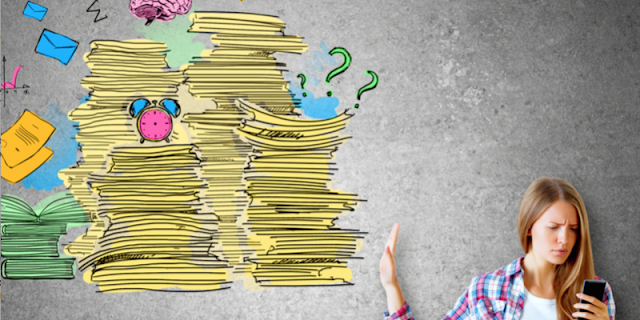IB Procrastination: General IB Guidance (How To Survive IB)
Procrastination is the topic of this third article in the ‘General IB Tips' collection. It is the foe of any IB student. Knowing how to succeed IB would necessitate any procrastination skills.
There is no single explanation for why IB students procrastinate. It's much more difficult to explain how to defeat it. That isn't to say you shouldn't try.
If you want to learn more about procrastination, check out this post. - Baccalaureate IB Exam Preparation Online courses for your better experience.
Survive IB: IB Procrastination (and how to deal with it)
The dreaded ‘P' term, which causes all IB students to cringe and twitch their thumbs as if they have no idea what I'm talking about.
Allow me to be precise. Every single one of us is a human being. We all have flaws, and no one is flawless. And the most ideal human being on the planet is prone to procrastination.
I just mention this because I am aware that I am in the minority (or majority). Who knows how many people physically beat themselves up for being human? That is something I am aware of because I was once one of those individuals. I used to hate myself for procrastinating.
What causes procrastination? I found that it occurs as a result of a latent fear of disappointment after hours of testing (hours while I should have been learning, haha).
Procrastination can be caused by a variety of factors. One of them is the fear of loss. If you type in "procrastination" into Google, the first few results will give you more details. Anyway, I think procrastination exists in IB students, or students in general, for a number of reasons.
Survive IB – Reason One for Procrastination
I'm sure you didn't expect the first explanation to be a lack of sleep, did you?
Trying to perform when not getting enough sleep, in my experience, is extremely complicated. I'm sure you can relate unless you're superhuman and can manage effortlessly without much sleep.
You'll be too tired to do anything if you don't get enough sleep. Job is probably almost as exhausting to dream about as it is to really do it. If you haven't had enough sleep, the first thing that comes to mind after lectures is "I'll just take a fast break."
If I do say so myself, this is a recipe for catastrophe. When you're exhausted, this is the last thing you want to do. TAKE A NAP if you're sleep deprived. I understand that this whole segment will not be news to all of you, but believe me if this is new material to you.
Take a nap. Do not consider taking a rest by browsing the internet. Instagram, Snapchat, Twitter, and Youtube are some of the most prominent social media sites (my personal procrastinating hub). Taking a holiday means throwing away hours of future jobs.
What is the moral of the story? When one is sleepy, one should take a nap. It's more important that you'll procrastinate because you're tired. So napping might be one way to deal with it.
IB – Procrastination Two
The second factor, and perhaps the most significant, is a fear of disappointment, which causes procrastination. There were a lot of ambitious students in my class when I was a kid. In the end, my graduation class of 2016 had the best IB performance my school had ever seen.
Whether you're creative and high-achieving, procrastination can become a challenge in your busy life at some point. If you're relaxed with your job and don't care if it's flawless, you'll probably procrastinate in the same way.
Let’s break it down:
If you work hard to get good grades and aspire to be the best of the best, the burden of deadlines will begin to creep up on you.
Can can hit a point where you are overly concerned or depressed, and you need to de-stress by diverting your attention away from the stressful job.
What's the end result? You might find yourself spending hours on Facebook, Twitter, or Instagram, unable to meet the task of returning to work and producing the perfect piece of coursework that will earn you a high score.
There is no one-size-fits-all approach to putting an end to this kind of procrastination. High achievers are still worried with their marks.
My recommendation comes from personal experience: concentrate on one piece of work at a time. Rely on the short-term escape from finishing the job that has a stricter timetable or holds greater weight in terms of grades.
For this form of procrastination, time control and coordination come in handy. If you know you're a high achiever but procrastinate because you're worried about finishing your job on time, time management is an important factor to consider.
When you're secure in your abilities to plan, you'll think less. There is a formal approach to doing jobs, but you are less concerned. Your time management ability can help to alleviate the consequences of your procrastination.
Another way to stop procrastination is to use pure determination. I know it sounds cliched or joking, but I've been able to snap out of procrastination mode and focus on long stretches of work on occasion.
Instead, I also strongly advise taking a calculated approach.
Survive IB – Reason Three for Procrastination
Purposeful procrastination is the next cause for procrastination in IB. This is simply the "oh, that's easy." Taking the “I'll do it tomorrow” solution. Would it seem to be innocuous? No way. It can create a stressful and depressing spiral.
Have you ever returned from school and found that the only piece of work you were offered today was one you could easily do, so you spend the rest of the day resting, preparing to work tomorrow?
You sure have. If you can contribute to the fact that you were given six more tasks the following day. Congratulations if this hasn't happened to you yet. That takes a lot of responsibility off your plate, until you make the mistake I'll discuss later (trust me, don't make this mistake).
What I'm trying to mean is that you must complete whatever job you are given, no matter how little. It's a smart idea to finish tasks as soon as possible. What is the explanation for this? And there will still be more work to do later.
Isn't it true that the less job you do, the better? Why would you want to spend the day resting if you already had work to do? Any students may be vulnerable to this, and they may find themselves scrambling the next day due to extra unforeseen work.
Which induces tension and anxiety of disappointment (followed by procrastination), which contributes to difficult jobs and sloppy performance, which leads to staying late into the night (due to procrastination), which leads to loss of sleep (followed by further procrastination), as well as diminished judgement, which leads to one day where you've done all of your work and there's just one new, simple task to do. I'm exhausted. I'll take care of it tomorrow.”
You see what I mean.
One little bit of purposeful, innocent procrastination leads to more procrastination and a lot more stress luggage to cart around. It's not a pleasant sensation, and it's not prudent to replay it. When you're ahead, break the cycle.
Do all of the tasks as soon as possible. It's a lot better to do what you consider is a simple bit of homework than it is to live with the simple bit of work followed by more work.
It's difficult to do some job in IB because you know there's a truckload more waiting for you.


Comments
Post a Comment